 W
WIn the Aeneid of Virgil, Achaemenides was a son of Adamastos of Ithaca, and one of Ulysses's crew. He was marooned on Sicily when Ulysses fled the Cyclops Polyphemus, until Aeneas arrived and took him to Italy with his company of refugee Trojans.
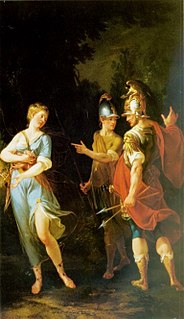 W
WIn the Aeneid, Achates was a close friend of Aeneas; his name became a by-word for a very intimate companion.
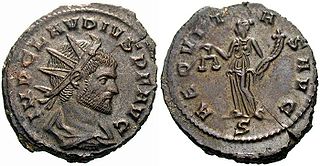 W
WAequitas is the Latin concept of justice, equality, conformity, symmetry, or fairness. It is the origin of the English word "equity". In ancient Rome, it could refer to either the legal concept of equity, or fairness between individuals.
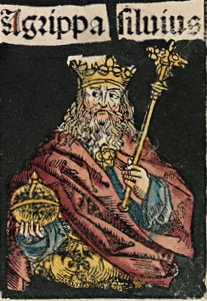 W
WIn Greco-Roman mythology, Agrippa was a descendant of Aeneas and King of Alba Longa, the capital of Latium, southeast of Rome. He was listed as king of Alba Longa in the time of Augustus. Some speculate that this was done in order to give prestige to Augustus' friend and son-in-law Marcus Vipsanius Agrippa. He was also ancestor of the legendary founders of Rome, Romulus and Remus.
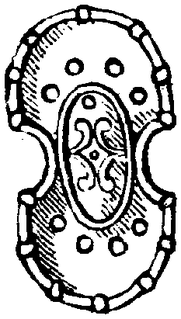 W
WIn ancient Rome, the ancilia were twelve sacred shields kept in the Temple of Mars. According to legend, one divine shield fell from heaven during the reign of Numa Pompilius, the second king of Rome. He ordered eleven copies made to confuse would-be thieves, since the original shield was regarded as one of the pignora imperii, sacred guarantors that perpetuated Rome as a sovereign entity.
 W
WThe Anguiped is a kind of divinity that is often found on magical amulets from the Greco-Roman period, and is characterized by having serpents for legs.
 W
WIn Book V of Ovid's mock-epic Metamorphoses, Athis is a young demigod from India, son of Limnaee, a nymph of the Ganges. He was follower of Phineus. During a quarrel between Perseus and Phineus, Perseus killed Athis, who was preparing to shoot his bow, with a log that had been smoldering in the middle of the altar. The Assyrian Lycabas, wept for his fallen comrade, and attempted to avenge him, shooting an arrow at Perseus from Athis's bow. However, Perseus avoided the arrow, and Lycabas, too, fell.
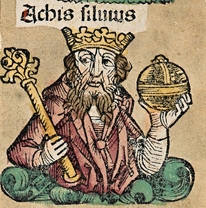 W
WIn Roman mythology, Atys was a descendant of Alba and the sixth king of Alba Longa. Geoffrey of Monmouth asserted in his Historia Regum Britanniae that Silvius succeeded Alba at the same time that Solomon began to build the Temple in Jerusalem and was visited by the Queen of Sheba, and king Leil of Britain founded Carlisle.
 W
WAvernus was an ancient name for a volcanic crater near Cumae (Cuma), Italy, in the region of Campania west of Naples. Part of the Phlegraean Fields of volcanoes, Avernus is approximately 3.2 kilometres (2.0 mi) in circumference. Within the crater is Lake Avernus.
 W
WIn ancient Roman religion and myth, Caca or Cacia is the giantess sister of Cacus, the son of Vulcan who stole cattle from Hercules during the course of his western labors. Caca betrays her brother by revealing the location of the cattle to Hercules, who had in turn stolen the cattle from Geryon.
 W
WIn Roman mythology, Caieta was the wet-nurse of Aeneas. The Roman poet Vergil locates her grave on the bay at Gaeta, to which she also gives her name. The poet Ovid, working a generation later, provides an epitaph:HIC • ME • CAIETAM • NOTAE • PIETATIS • ALVMNUS EREPTAM • ARGOLICO • QVO • DEBVIT • IGNE • CREMAVIT
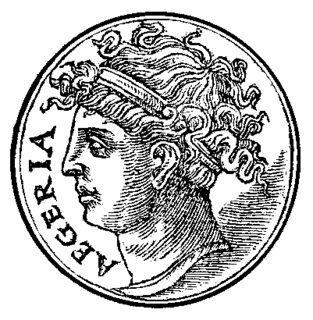 W
WIn Roman mythology, the Camenae were originally goddesses of childbirth, wells and fountains, and also prophetic deities.
 W
WIn Virgil's Aeneid, Camilla of the Volsci is the daughter of King Metabus and Casmilla. Driven from his throne, Metabus is chased into the wilderness by armed Volsci, his infant daughter in his hands. The river Amasenus blocked his path, and, fearing for the child's welfare, Metabus bound her to a spear. He promised Diana that Camilla would be her servant, a warrior virgin. He then safely threw her to the other side, and swam across to retrieve her. The baby Camilla was suckled by a mare, and once her "first firm steps had [been] taken, the small palms were armed with a keen javelin; her sire a bow and quiver from her shoulder slung." She was raised in her childhood to be a huntress and kept the companionship of her father and the shepherds in the hills and woods.
 W
WCapetus or Capetus Silvius (Latin: Căpĕtŭs Sĭluĭŭs) was a descendant of Aeneas and one of the legendary Latin kings of Alba Longa. He was the son of Capys, and the father of Tiberinus, after whom the Tiber river was named.
 W
WIn Roman mythology, Clementia was the goddess of clemency, leniency, mercy, forgiveness, penance, redemption, absolution, acquittal and salvation.
 W
WIn Roman mythology, Clitumnus was a son of Oceanus and Tethys. He was the god of the Clitunno River in Umbria.
 W
WDea Dia was a goddess of fertility and growth in ancient Roman religion. She was sometimes identified with Ceres, and sometimes with her Greek equivalent Demeter.
 W
WDies was the personification of day Roman mythology, and the counterpart of the Greek goddess Hemera, the daughter of Nox (Night) and Scotus (Darkness).
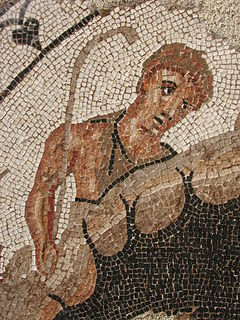 W
WIn Roman mythology, Faustulus was the shepherd who found the infant Romulus and his twin brother Remus along the banks of the Tiber River as they were being suckled by the she-wolf, Lupa.According to legend, Faustulus carried the babies back to his sheepfold for his wife Acca Larentia to nurse them. Faustulus and Acca Larentia then raised the boys as their own. Romulus later killed King Amulius of Alba Longa and his brother Remus before founding the city of Rome "in the place where they [Romulus and Remus] had been raised."
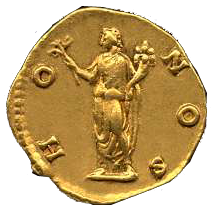 W
WHonos or Honor was the Roman god personifying honor. He was closely associated with Virtus, the goddess of manliness, or bravery, and the two are frequently depicted together. Honos is typically shown wearing a chaplet of bay leaves, while Virtus is identified by her helmet.
 W
WThe Lacus Iuturnae — or Lacus Juturnae or Spring of Juturna — is the name of a formal pool built by the Romans near a spring or well in the Roman Forum. The pool was part of a shrine dedicated to the water nymph Juturna, and the name Lacus Iuturnae is also used for the spring and the shrine, both next to the pool.
 W
WLausus was the son of the ousted Etruscan king Mezentius, and fought with him against Aeneas and the Trojans in Italy. He appears in Virgil's Aeneid in Books VII and X. When his father is wounded by Aeneas, Lausus steps in between them, and Aeneas strikes them down. In doing so, Lausus embodies the idea of pietas that Virgil praises throughout, exemplified in the relationships of Anchises and Aeneas and of Pallas and Evander. Aeneas immediately feels remorse for having killed the boy, and reproaches Lausus' men for keeping a distance rather than caring for the body: "Then to the stripling's tardy followers / he sternly called, and lifted from the earth / with his own hand the fallen foe: dark blood / defiled those princely tresses braided fair."
 W
WIn ancient Roman culture, liberalitas was the virtue of giving freely, hence generosity. On coins, a political leader of the Roman Republic or an emperor of the Imperial era might be depicted as displaying largess to the Roman people, with liberalitas embodied as a goddess at his side. The goddess Liberalitas appears on coinage issued under the emperors Gordian III Trajan, Antoninus Pius and Septimius Severus, sometimes designated as Augusta or Augusti in association with Imperial cult. On one example, a Roman holds out his toga to receive coins poured by Liberalitas, as Antoninus looks on from an elevated seat.
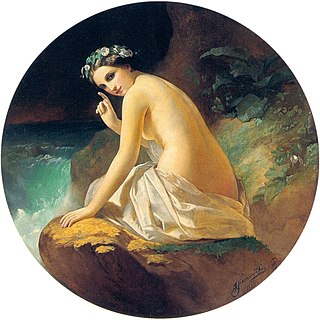 W
WIn Roman mythology, Marica was a nymph, the mother of Latinus. Latinus was fathered by Faunus, who was also occasionally referred to as the son of Marica. The sacred forest near Minturnae was dedicated to Marica. A lake nearby was also named after her. Various Roman authors claims that she was a form of Diana or Venus.
 W
WMefitis was the Samnite goddess of the foul-smelling gases of the earth, worshipped in central and southern Italy since before Roman times, with her main shrine at the volcano Ampsanctus in Samnium. There was a temple dedicated to her in Cremona, and another on the Esquiline Hill in Rome. It is theorized that Mefitis was originally a goddess of underground sources, such as natural springs—the fact that many of these springs were sulfurous led to her association with noxious gases. She is almost always identified with volcanoes, having been worshipped at Pompeii. Her name, which likely means "one who smokes in the middle", is also seen as Mephitis.
 W
WIn Roman mythology, King Metabus of the Volsci was the father of Camilla.
 W
WMettius Fufetius was a dictator of Alba Longa, an ancient town in central Italy near Rome. He was appointed after the death of king Gaius Cluilius. When a full-blown war threatened to erupt between the Alba Longans and the Romans, Fufetius proposed to the third legendary King of Rome, Tullus Hostilius, a smaller 3 vs. 3 battle. Having lost this, the Albans submitted themselves to Roman rule. Disappointed in the outcome, Fufetius later schemed with an Etruscan rival, but was defeated by Rome.
 W
WIn Roman mythology, Morta was the goddess of death. She is one of the Parcae, related to the Roman conception of the Fates in Greek mythology, the Moirai. Her Greek equivalent is Atropos. She is responsible for the pain and/or death that occur in a half-wake, half-sleep time frame. Her father is the god of darkness and her mother is the goddess of night. She visits and warns in advance of the pain and/or death about to be endured.
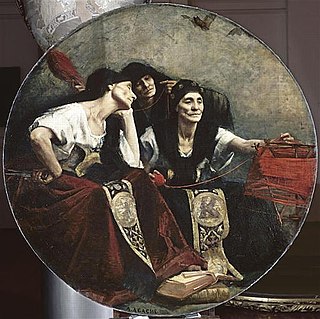 W
WNona was one of the Parcae, the three personifications of destiny in Roman mythology, and the Roman goddess of pregnancy. The Roman equivalent of the Greek Clotho, she spun the thread of life from her distaff onto her spindle. Nona, whose name means "ninth", was called upon by pregnant women in their ninth month when the child was due to be born.
 W
WIn Roman mythology, King Numitor of Alba Longa, was the maternal grandfather of Rome's founder and first king, Romulus, and his twin brother Remus. He was the son of Procas, descendant of Aeneas the Trojan, and father of the twins' mother, Rhea Silvia, and Lausus.
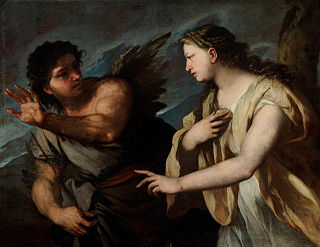 W
WPicus was a figure in Roman mythology, the first king of Latium. He was the son of Saturn, also known as Stercutus. He was the founder of the first Latin tribe and settlement, Laurentum, located a few miles to the Southeast of the site of the later city of Rome. He was known for his skill at augury and horsemanship. According to Festus he got his name as a consequence of the fact that he used to rely on a woodpecker for the purpose of divination. Picus was also described to be quite handsome, sought after by nymphs and naiads. The witch Circe attempted to seduce him with her charms and herbs while he was on a hunting trip, but he savagely rejected her. She turned him into a woodpecker for scorning her love. When his comrades accused Circe of her crime and demanded Picus' release, she turned them too into a variety of beasts. Picus' wife was Canens, a nymph. After Picus' transformation she wandered madly through the forest for 6 days until finally she lay down on the bank of the Tiber and died. They had one son, Faunus.
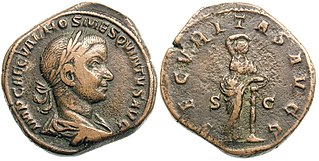 W
WIn Roman mythology, Securitas was the goddess of security and stability, especially the security of the Roman Empire. On coinage Securitas was usually depicted leaning on a column.
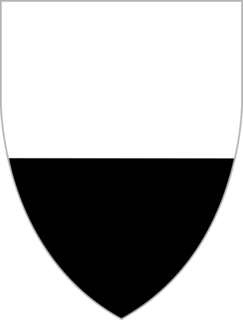 W
WSenius and Aschius are the two legendary founders of Siena, Italy. They were brothers, sons of Remus, and thus Romulus was their uncle.
 W
WTalasius is also known as Thalasius, Talassus and Talassio is a god of marriage in Roman mythology. His equivalent in Greek mythology is Hymen. His name was called out during marriages. The name was derived from Thalasus, which mean wool-basket. Later accounts state that he is friend of Romulus, and that he played a role in the rape of the Sabine women.
 W
WThe Temple of Janus, is a temple to the Roman god Janus in the Forum Holitorium, Rome.
 W
WTiberinus is a figure in Roman mythology. He was the god of the Tiber river. He was added to the 3,000 rivers, as the genius of the Tiber.
 W
WThe Tyche of Constantinople was the deity of fortune (Tyche) who embodied the guardianship (tutela) of the city of Constantinople in the Roman Imperial era. Malalas says that her name was Anthousa. Her attributes included the mural crown, cornucopia, a ship's prow, and a spear. She was depicted standing or seated on a throne. As the personification of the city, Tyche or Anthousa could be abstracted from her origins as a Classical goddess, and like Victory made tolerable as a symbol for Christians. Under Constantine, the Tychai of Rome and Constantinople together might be presented as personifications of the empire ruling the world.
 W
WVictoria, in ancient Roman religion, was the personified goddess of victory. She is the Roman equivalent of the Greek goddess Nike, and was associated with Bellona. She was adapted from the Sabine agricultural goddess Vacuna and had a temple on the Palatine Hill. The goddess Vica Pota was also sometimes identified with Victoria. Victoria is often described as a daughter of Pallas and Styx, and as a sister of Zelus, Kratos, and Bia.
 W
WIn Roman mythology, Virtus was the deity of bravery and military strength, the personification of the Roman virtue of virtus. The Greek equivalent deity was Arete. The deity was identified with the Roman god Honos and was often honoured together with him, such as in the Temple of Virtus and Honos at the Porta Capena in Rome.
 W
WIn Roman mythology, Voluptas or Volupta, according to Apuleius, is the daughter born from the union of Cupid and Psyche. She is often found in the company of the Gratiae, or Three Graces, and she is known as the goddess of "sensual pleasures", "voluptas" meaning "pleasure" or "delight".